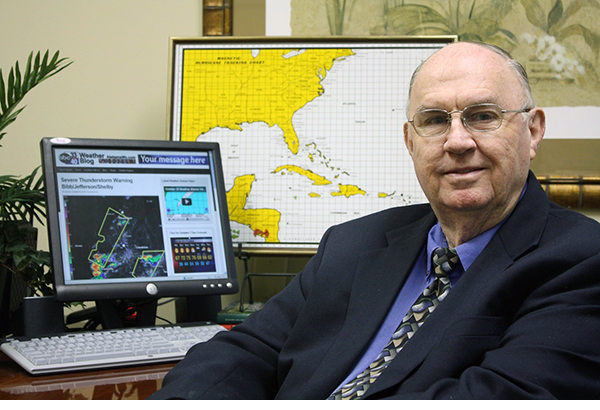How the Weather Effects Fireflies
(Credit: The Farmers Almanac, Washington Post, Smithsonian Magazine)
For every summer that I can remember, I remember going outside and catching fireflies in the backyard. These cold-blooded bugs are bioluminescence, which means there is a chemical reaction between luciferin and luciferase. Luciferin is an enzyme which brings oxygen and luciferin together. This creates a lot of energy; to which they emit 100% of its energy by giving off light.
During the winter, fireflies are usually in the larval stage and hibernate by burrowing underground until they emerge in the spring. Larvae live underground in the winter, mature during the spring and emerge in the early summer. When they emerge, it ranges from the third week of May to the third week of June. In years when summer-like weather arrives before June, they tend to appear earlier than usual – like late spring. The air temperature and rainfall play a huge role in when they emerge. Since they feed on snails, slugs, and pill bugs, which are brought out by the rain and moist environment, fireflies like the muggy weather.
Cold-blooded bugs like fireflies slow down when it gets cold. As the weather gets colder, the flash in the fireflies will flash at a slower rate. But once the air temperature reaches 50 degrees Fahrenheit and lower, that’s when they will stop flashing and flying around.
An Ideal night for these insects is when it’s warm and muggy. If it rained during the day, an ideal environment would be present during the nighttime hours for their prey. If it is a cloudy night, the clouds act as a “blanket” over the surface, keeping the warm air from the day close to the surface. Since the moon doesn’t give off any radiation/heat, the clouds have stored energy from the day that they give off to the Earth’s surface during the night. This acts as a “blanket” to the surface keeping it warm throughout the night and not letting the heat escape.
So, if you are trying to look for fireflies, then your best bet would be to do so on a warm and muggy night.
To learn more about other interesting educational stories in atmospheric, oceanic, or climate science from around the world, be sure to click on the following link: www.globalweatherclimatecenter.com/education.
© 2018 Weather Forecaster Allison Finch
AlabamaWX is pleased to partner with the Global Weather and Climate Center team for outstanding posts about our atmosphere. Visit them at https://www.globalweatherclimatecenter.com for more great information!
Category: Partner News Stories
















